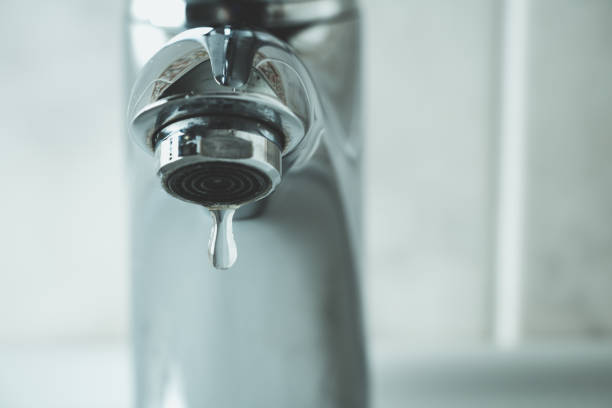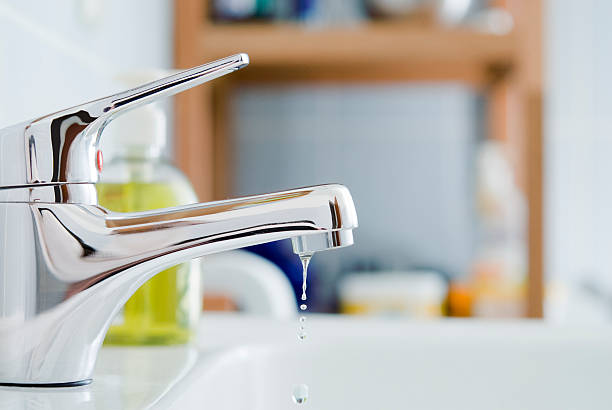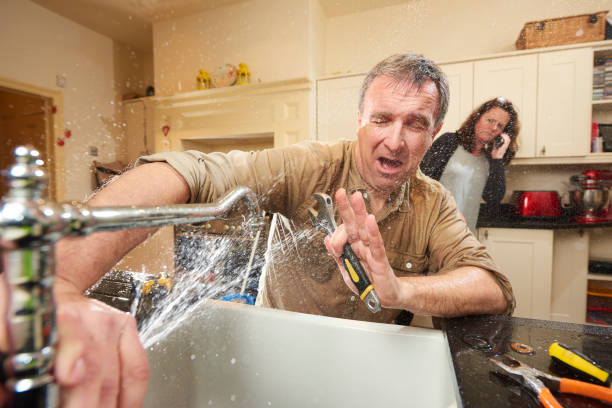Why do i hear water running at night?
If you’ve ever been woken up in the middle of the night by the sound of water running, you know how frustrating it can be. Not only does it disturb your sleep, but it can also be an indication that something is amiss with your plumbing. In this article, we’ll explore the various factors that contribute to why water runs at night and provide insights on how to address this issue.

Whether it’s noisy pipes, water hammer, or worn-out washers, we’ll cover the possible causes of water running at night and offer solutions to prevent it from happening again. Additionally, we’ll discuss when it’s appropriate to seek the help of a professional plumber to address these issues. By the end of this article, you’ll have a better understanding of the reasons behind water running at night and strategies to prevent it from happening in the future.
Reasons for Water Running at Night
Have you ever been awakened by the sound of water running in the dead of night? It’s not only annoying, but it could also indicate an underlying issue with your plumbing system. There are several reasons why you might hear water running at night, from minor issues like worn washers to more serious problems like water hammer. In this article, we’ll explore the most common causes of noisy water pipes and what you can do to fix them. So, let’s get started!
Loose Pipes
Do you keep hearing the sound of water running at night? This could be due to loose pipes in your plumbing system that move about and make noise. Fortunately, this is a common issue and can be fixed easily.
Here are some steps to help fix loose pipes and stop water running at night:
1. Identify the location of the loose pipe. If possible, inspect the plumbing system to locate the pipe that may be making the noise.
2. Check for any mounting straps that may have loosened and caused the pipes to move about. If you find any, use pliers to tighten them and secure the pipe in place.
3. If tightening the mounting straps doesn’t help, try wrapping foam insulation around the pipes to reduce movement. You can buy foam insulation at your local hardware store.
4. To apply the foam insulation, measure the length and diameter of the pipe and cut the foam insulation accordingly. Wrap the insulation around the pipe tightly and tape the ends together.
5. If the pipe in question is not accessible, you can drill a small hole and use expanding foam to fill the void. Expanding foam is a minimally invasive solution that expands and fills gaps to stop movement.
By taking these steps, you can fix loose pipes and prevent water from running through your plumbing system at night. Keep in mind that if you’re not confident in fixing the problem yourself, it’s always best to seek advice from a professional plumber.
Pressure-reducing Valve
A pressure-reducing valve (PRV) is a crucial component in your plumbing system responsible for regulating the water pressure that enters your home from the main water supply line. High water pressure can cause damage to plumbing pipes, fixtures, and appliances, which can be costly to repair or replace.

The PRV is typically located near the main shut-off valve, and it’s essential to check its functionality and settings regularly. It’s easy to identify the PRV and check for any visible signs of wear or damage. If the valve is in optimal condition, it will continue to regulate the water pressure effectively.
Over time, the PRV may need some adjustments or replacement. If you notice any abrupt changes in your water pressure or experience water hammering, this could indicate a problem with your PRV. In such cases, you should consider hiring a licensed plumber to inspect the valve and provide necessary repairs or replacements.
A licensed plumber can check the valve’s condition, determine whether it needs adjustments or replacement, and verify that it is working adequately. Identifying and repairing such issues early can help avoid costly repairs to the plumbing system, fixtures, or appliances.
In conclusion, the pressure-reducing valve is a crucial component in your plumbing system responsible for controlling water pressure entering your home. Regular checks and maintenance of the PRV can prevent costly repairs and keep your plumbing system in good condition. If you’re unsure of the PRV’s condition, contact a licensed plumber to inspect and provide necessary repairs or replacements.
Shock Absorbers
If you’re experiencing loud banging noises coming from your plumbing system, you may be dealing with hydraulic shock caused by water flow or pressure in the pipes. This problem can cause damage to your pipes and fixtures over time if left unaddressed. Fortunately, there is a solution: shock absorbers, also known as water hammer arrestors.
Shock absorbers are specifically designed to absorb the force of hydraulic shock, preventing the momentum of the water from creating a pressure wave that causes banging noises. These devices contain a spring-loaded component that diverts the force of the water when a faucet is turned off, effectively eliminating the cause of the noise.
Unlike air chambers, which can become waterlogged over time and lose their effectiveness, shock absorbers provide a more permanent solution to the problem of hydraulic shock. However, the installation of these components can be complex, and most homeowners will need to ask a licensed plumber for assistance.
If you’re considering installing shock absorbers to address the problem of banging noises in your plumbing system, be sure to work with a professional plumber who has experience with installing these devices. They can help you determine the right location for your shock absorbers and ensure that they are installed correctly to provide the maximum benefit. By taking action to address hydraulic shock in your plumbing system, you can prevent damage and enjoy a quieter, more efficient plumbing system.

Worn Washers
If you’ve been hearing an annoying sound of water running at night in your home, then it might be caused by worn-out washers. Over time, washers that are frequently used in faucets can wear out and lose their effectiveness, leading to the sound of water running even when no tap is open.
To address this problem, you should start by examining all the taps in your house to identify the affected ones. Once you’ve spotted the problematic taps, you can then turn off the main water valve to prevent any unnecessary leaks.
Next, take off the handle of the faucet and locate the screw that attaches the flat washer to the seat. Remove this screw and take out the old washer, making sure to replace it with a newer and more modern alternative that fits the same size as the previous valve washer.
Once you’ve replaced the washer, tighten the screw back in its original position and re-attach the handle. Finally, turn on the tap to test if the haunting sound of water running at night is still present.
By replacing the worn-out washers, you can put an end to the annoying sound of water running at night and restore the peaceful ambiance of your home. Remember that if the sound persists even after changing the washer, then it’s probably best to seek the help of a professional plumber to investigate the issue further.
Meet Lila Robinson, an expert in the world of plumbing with a talent for delivering valuable insights and captivating articles on an array of plumbing topics. With years of experience handling complicated plumbing issues, Lila has become a go-to resource for homeowners and businesses alike.
Packing vast knowledge in plumbing tools and science, Lila creates a sense of community on her blog and social media accounts, engaging with readers from all walks of life. Her writing style is authentic, unique, and engaging, and she has an exceptional ability to break complex concepts into understandable ideas.
If you have encountered a plumbing issue, chances are Lila Robinson has conquered it. Her articles uncover the underlying problems behind some of the most unexpected plumbing problems, from tankless water heater error codes to drain snakes in vents.
Whether you’re a beginner or an experienced plumber, Lila Robinson’s blog has something for you. Follow her social media accounts to keep up-to-date with the latest posts and join the conversation.